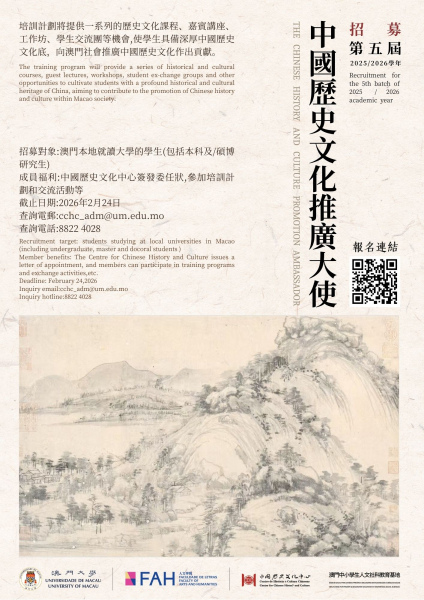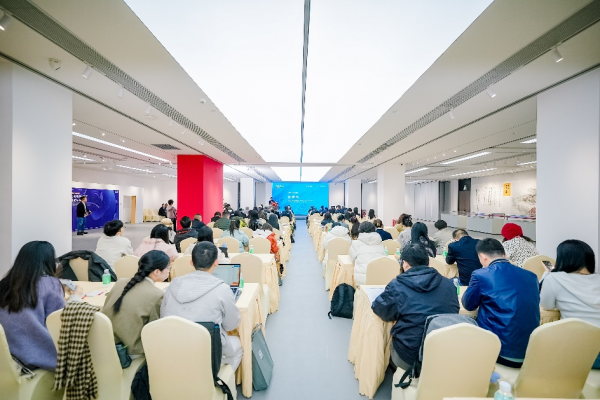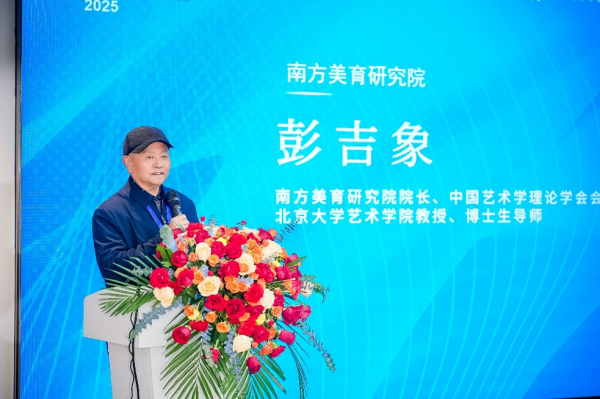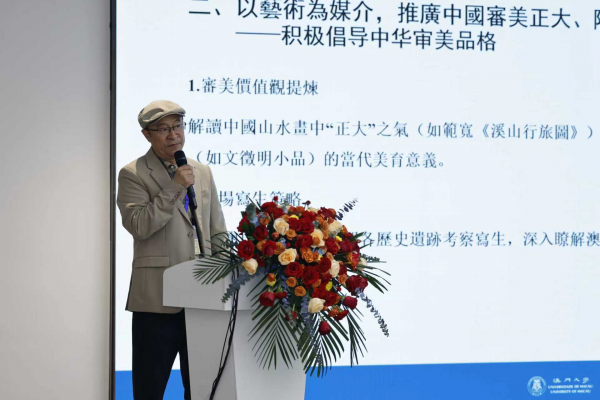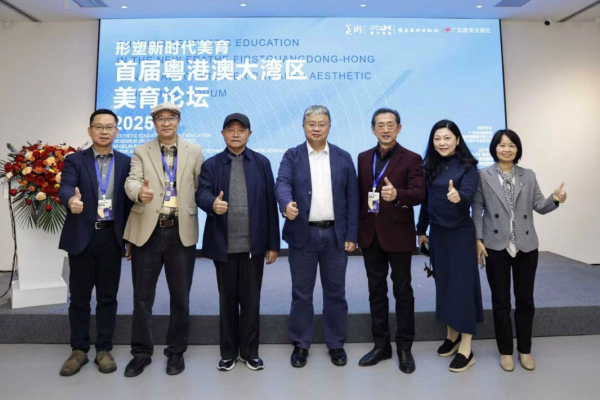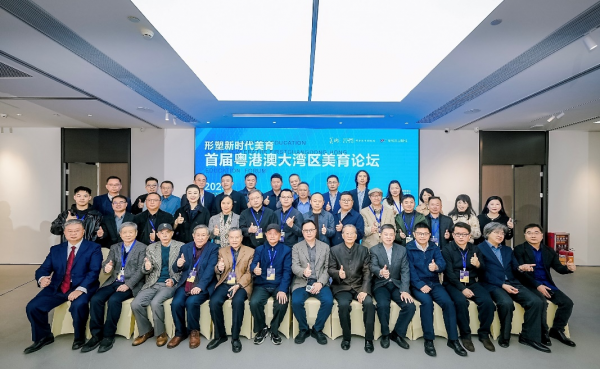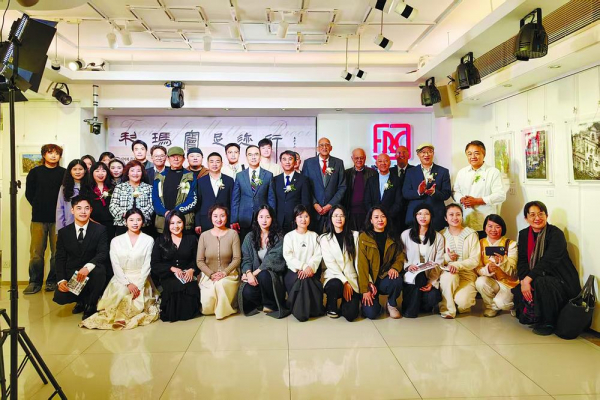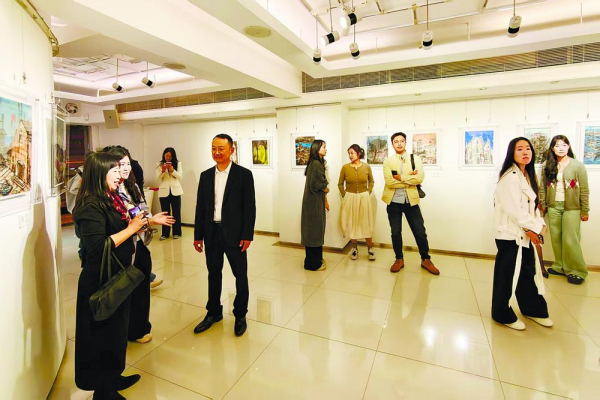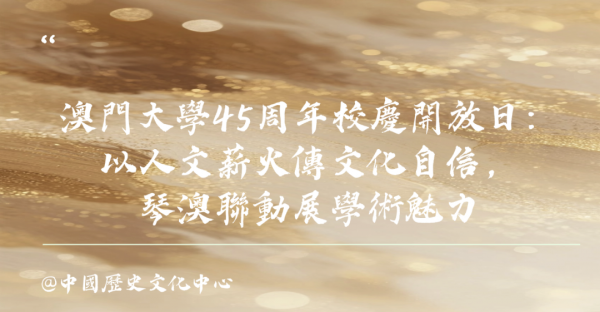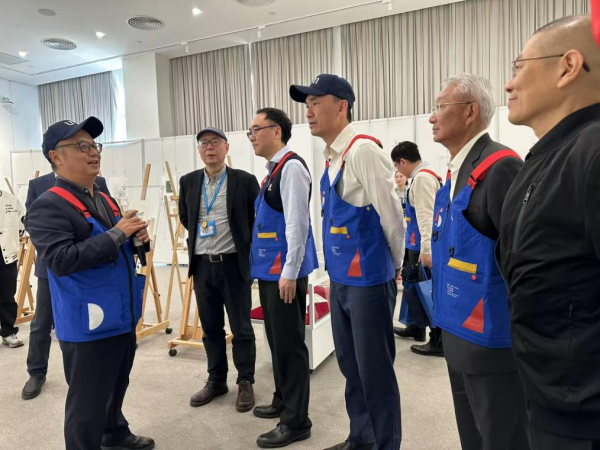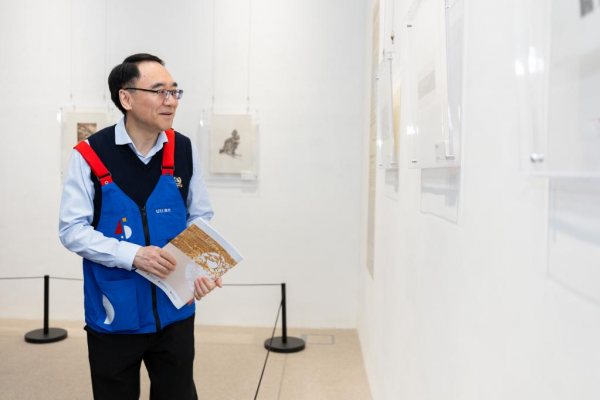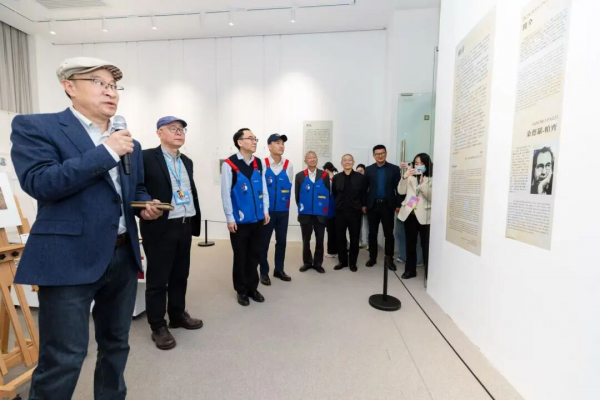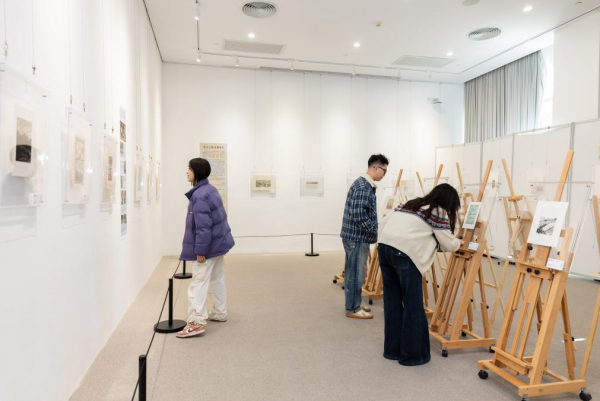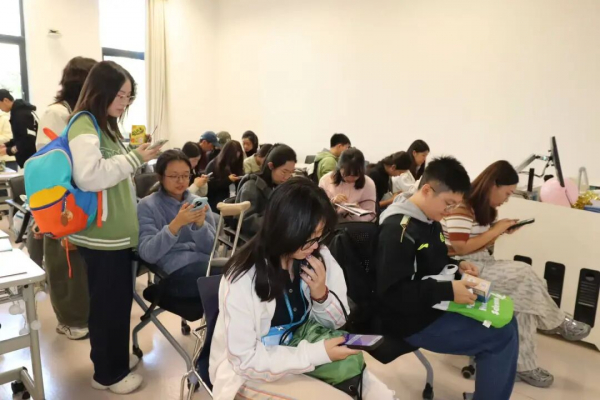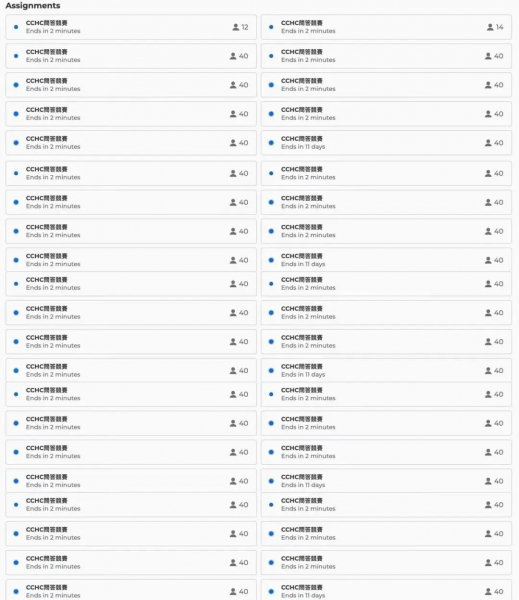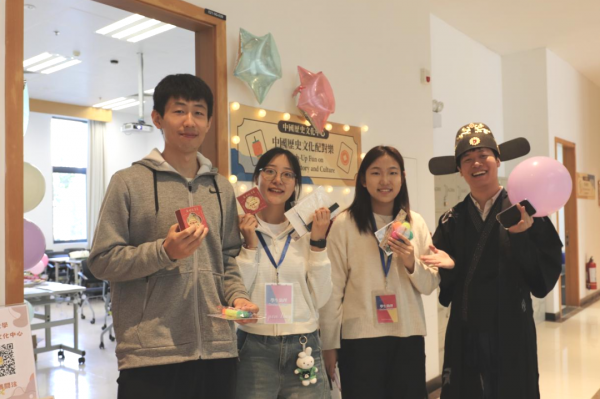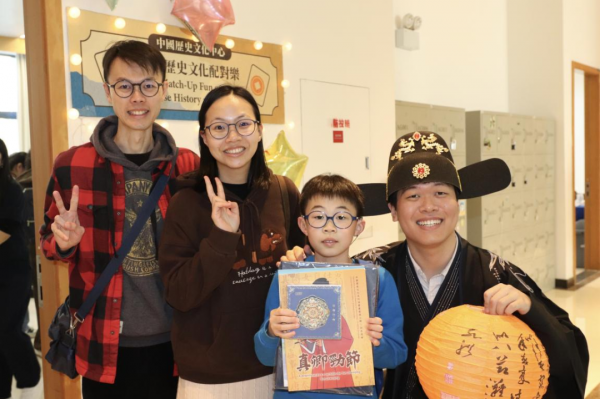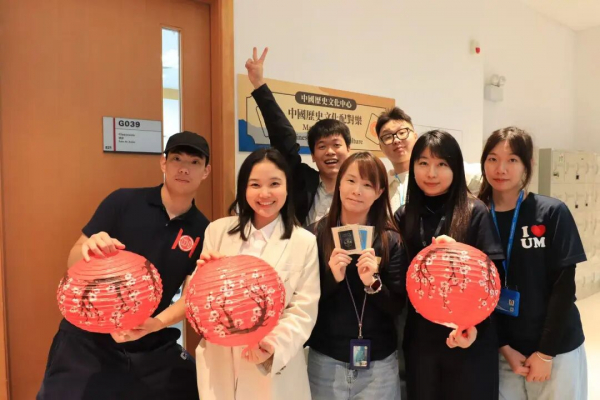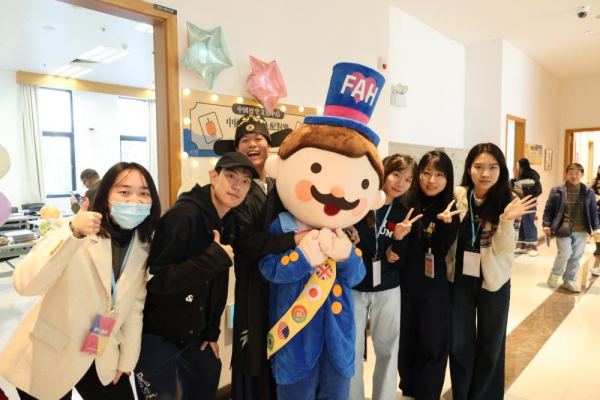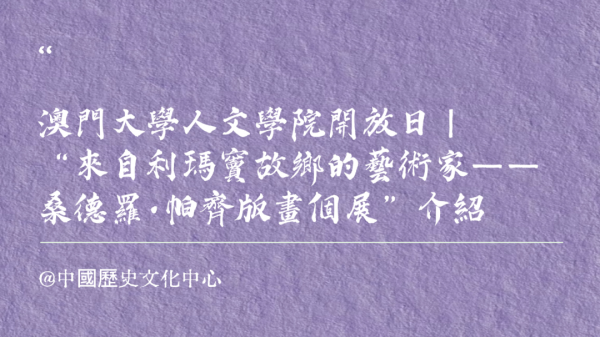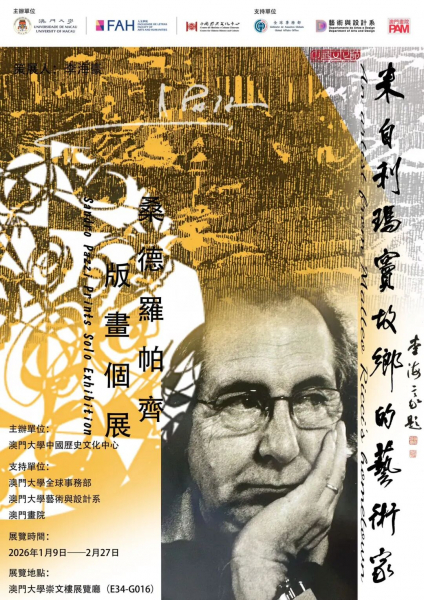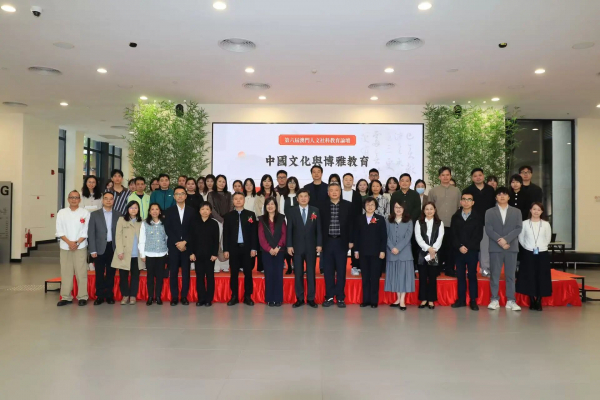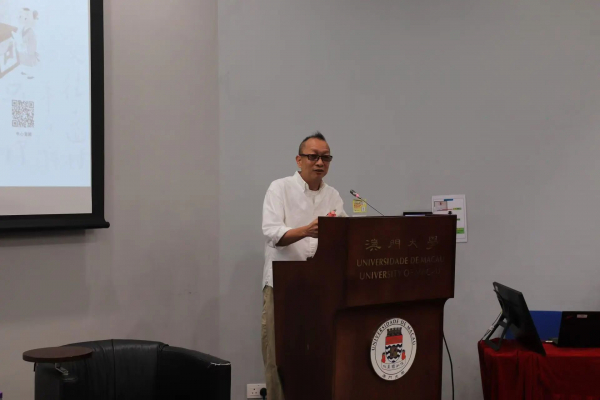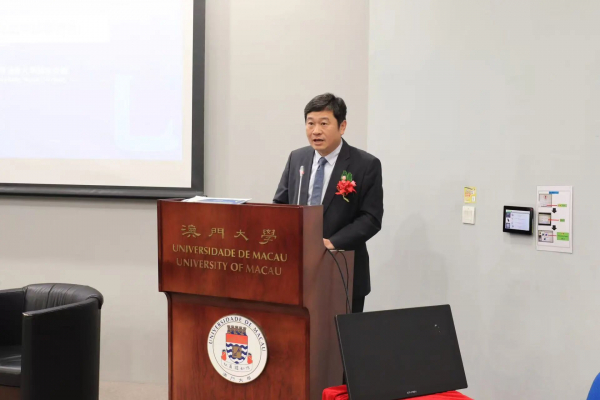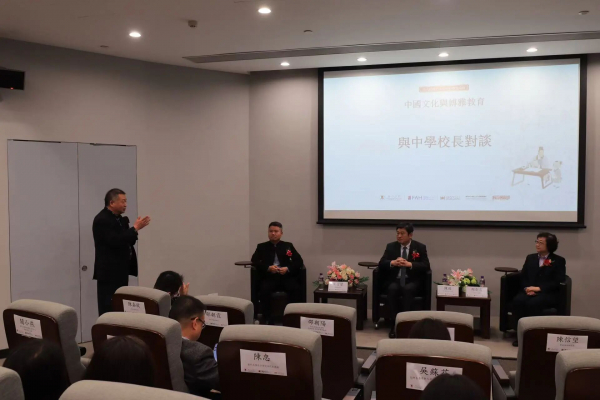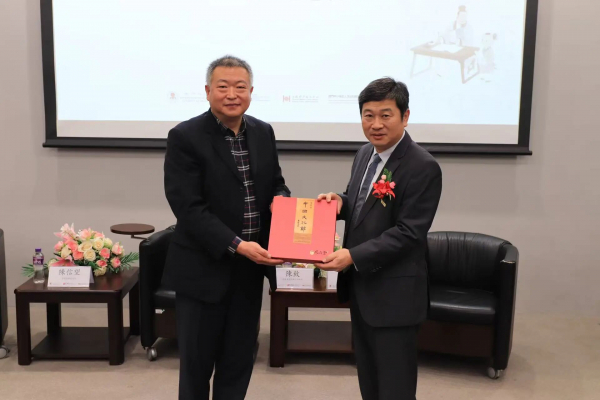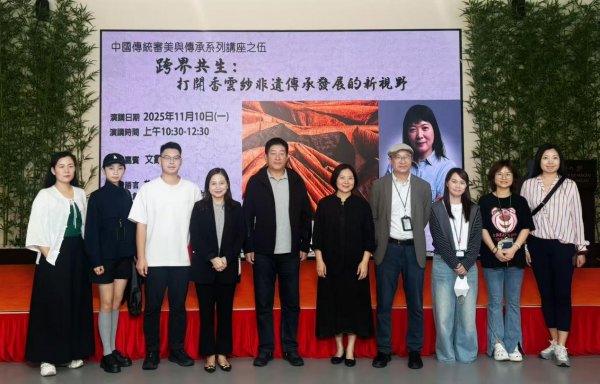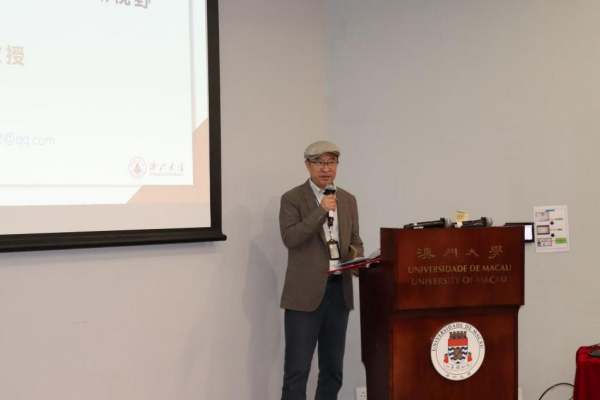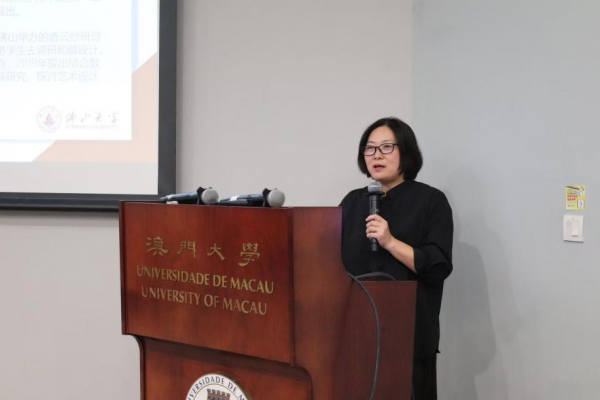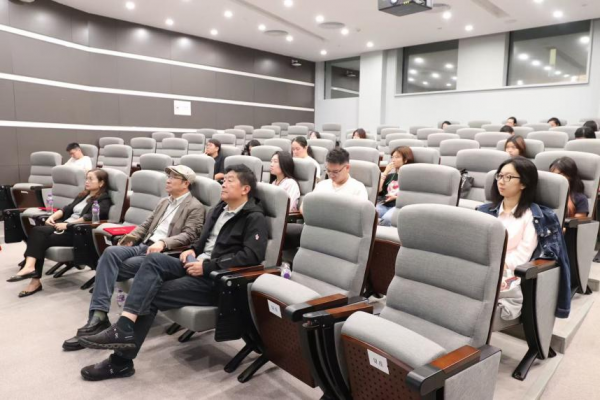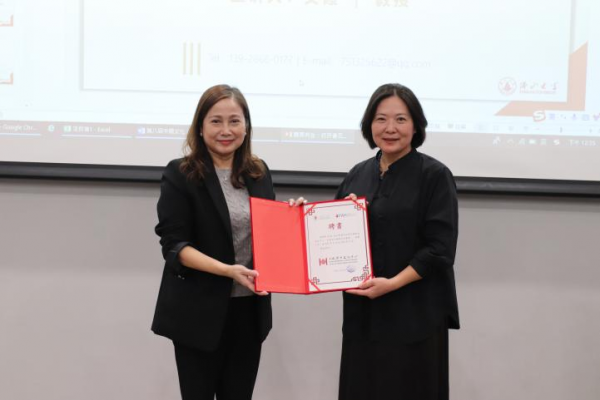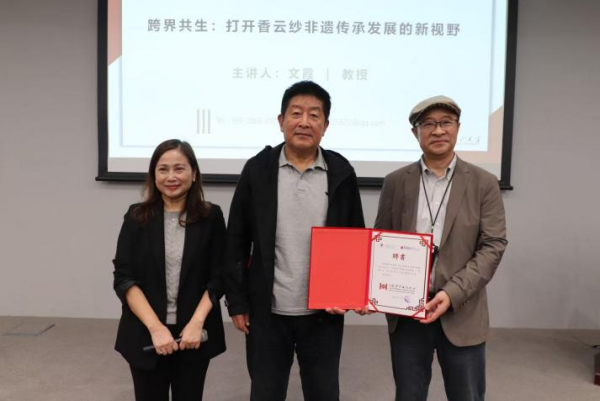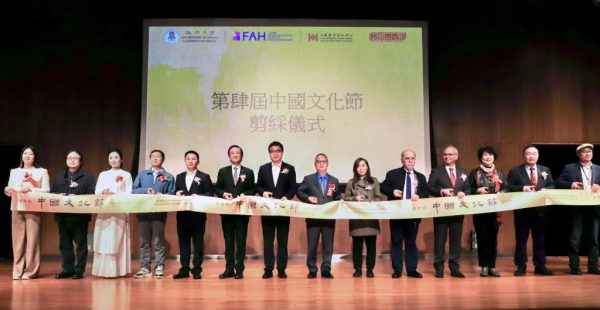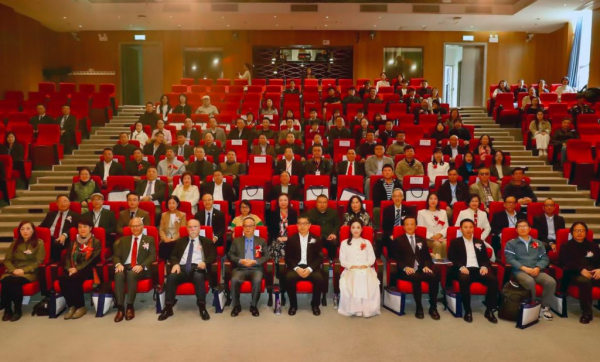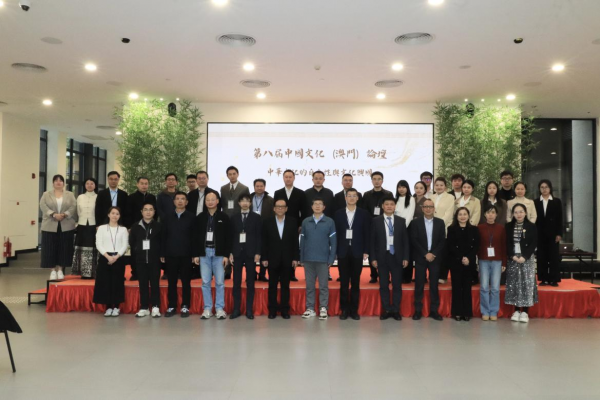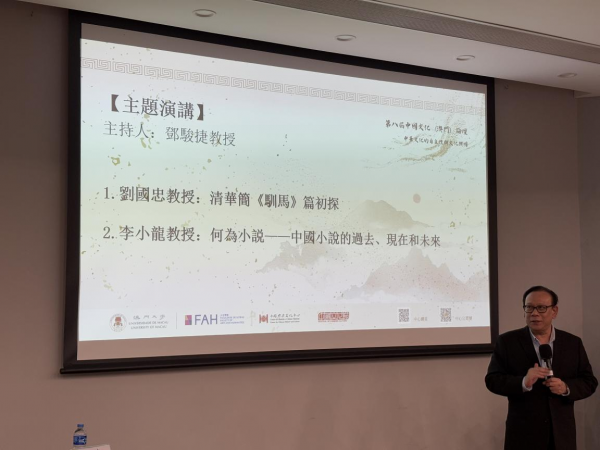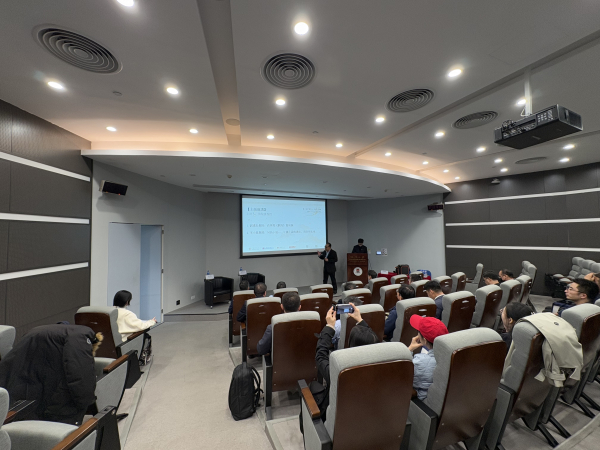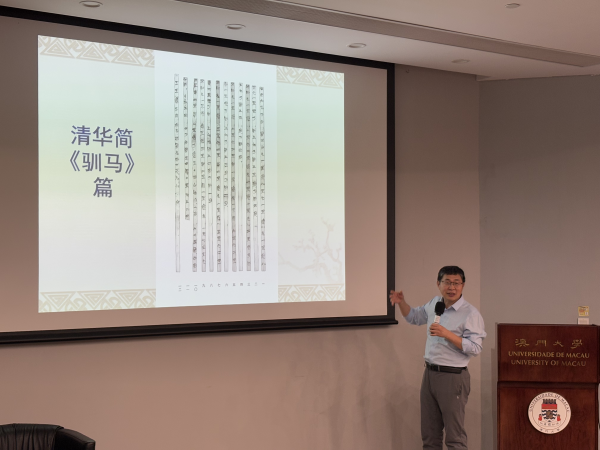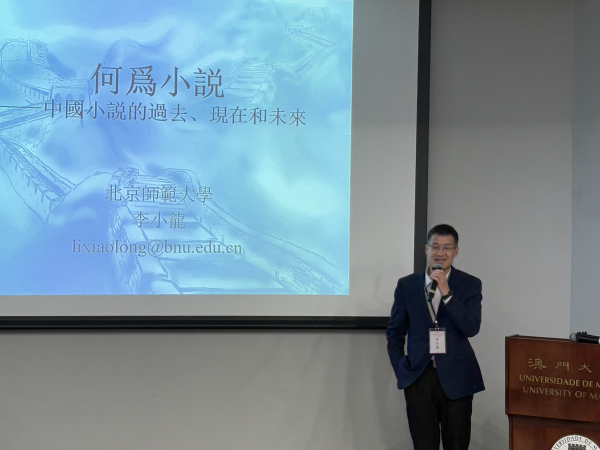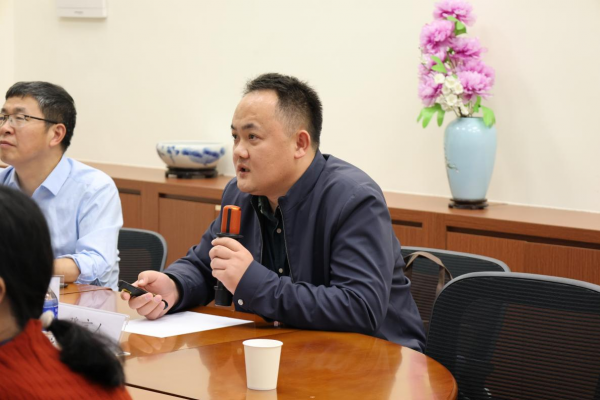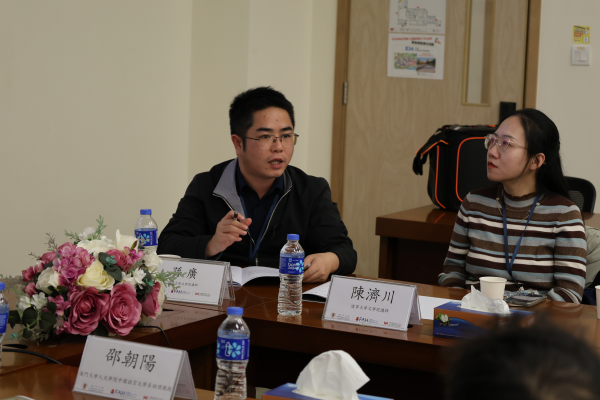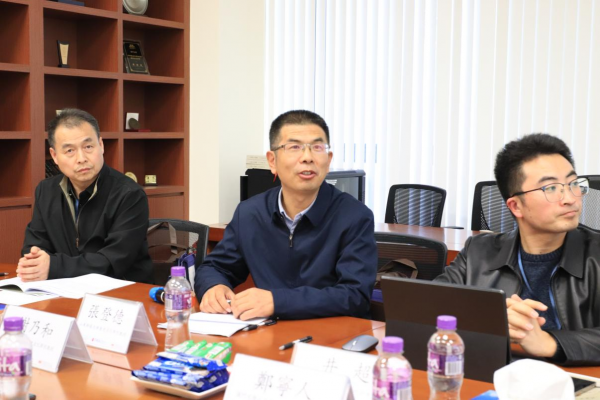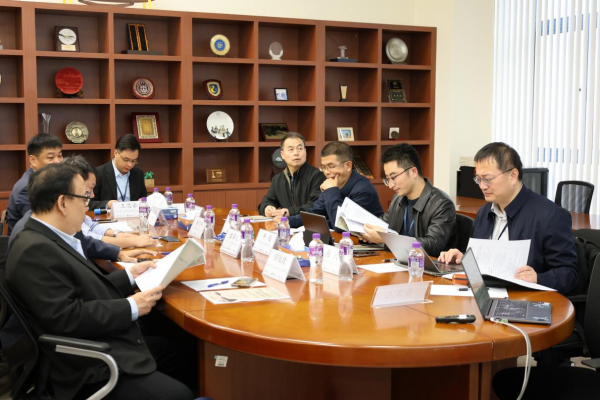To enhance students’ understanding of Chinese literature and promote the outstanding traditions of Chinese culture, the Student Affair Office of the University of Macau and the Centre for Chinese History and Culture jointly organized a series of themed lectures on December 3. The events featured Prof. Zhang Jinjiang, a renowned writer, literary critic, and scholar, who delivered lectures titled Literary Reflections on Life and The Classic of Mountains and Seas at the Colégio Mateus Ricci and the Choi Kou School Macau respectively, attracting over 900 teachers and students in total.
The first lecture, held at Colégio Mateus Ricci, was themed Literary Reflections on Life. Through vivid literary examples and profound insights drawn from life, Prof. Zhang guided teachers and students to re-examine the essence of life, inspiring diverse interpretations of its meaning. His sharing also provided valuable guidance for students in creating literary works centered on the theme of life.
The second lecture took place at Choi Kou School Macau under the theme The Convergence of Deities in Sanxingdui and The Classic of Mountains and Seas, and Modern Imaginations of the New Interpretation of the Classic of Mountains and Seas. Drawing on his personal field research experiences at Sanxingdui, Prof. Zhang juxtaposed textual records from The Classic of Mountains and Seas with Sanxingdui artifacts, exploring cultural elements such as divinity and sun worship. He also shared the concepts and achievements behind his New Interpretation of the Classic of Mountains and Seas series.
During the interactive sessions of both lectures, Prof. Zhang responded warmly to questions from teachers and students, sharing his unique perspectives and fostering meaningful intellectual exchange.
Prof. Zhang Jinjiang previously served as Director of the Creative Writing Teaching and Research Section at the School of Literature, Shanghai University, and as a professor at East China Normal University. He is currently a member of the China Writers Association. His academic accomplishments and creative achievements are widely recognized. As the “founder of China’s new mythological fiction,” he devoted 13 years to researching the ancient Chinese classic The Classic of Mountains and Seas and authored a 12-volume series of new mythological novels titled New Interpretation of the Classic of Mountains and Seas, accumulating profound experience in both theoretical research and creative practice.
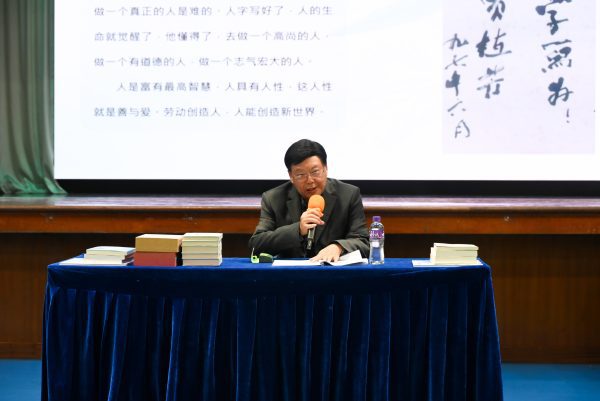
Prof. Zhang Jinjiang

Lecture on “Literary Reflections on Life” at the Colégio Mateus Ricci
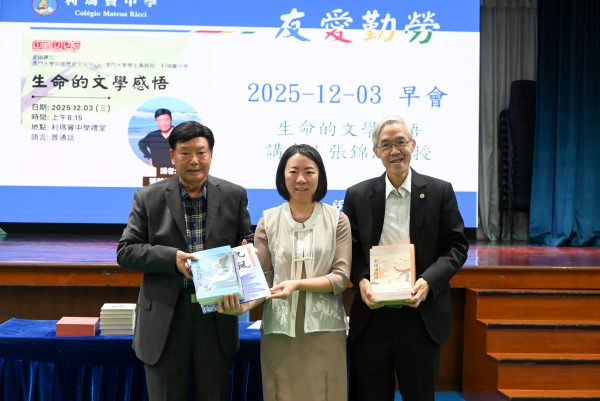
Group Photo at the Colégio Mateus Ricci
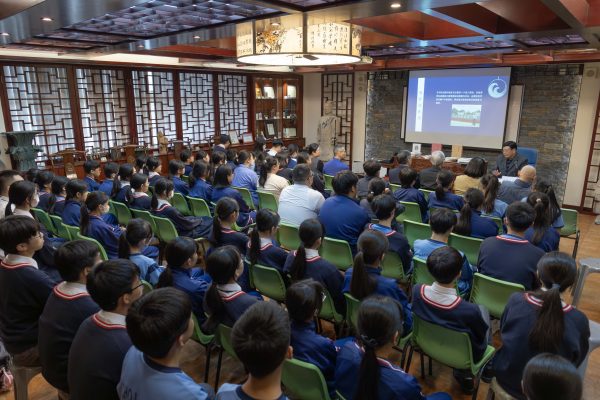
Lecture on “The Encounter of Deities in Sanxingdui and The Classic of Mountains and Seas, and Modern Imaginative Interpretations in ‘A New Interpretation of the Classic of Mountains and Seas’”, held at Choi Kou School Macau
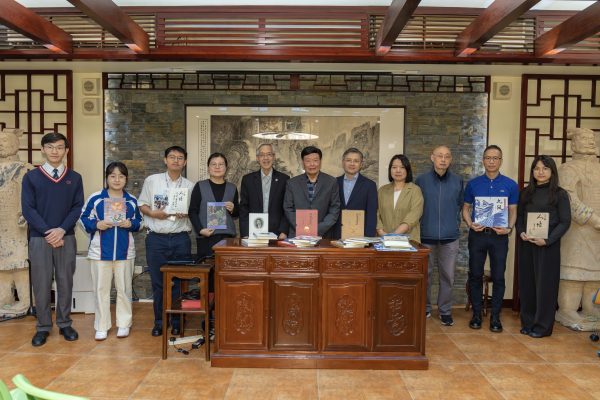
Group Photo at the Choi Kou School Macau
Teachers’ and Students’ Reflections: Intellectual Enlightenment and Cultural Resonance
For detailed information, please refer to the Chinese version.
生命沒有固定的答案——聽張錦江教授「生命的文學感悟」演講利瑪竇中學
初三A 江若程
張教授講到,自己寫了《人夢》《人界》《人悟》三部曲,其中收官之作《人悟》對生命意義的探討最集中,提出“只要有生,就有出路與機會”。他結合經歷,感悟到生命的真諦不止於活著,更在於超越生命的精神追求;他還講到,《一個站著死的男孩》裡面身患重疾卻樂觀堅韌的少年,引導我們理性面對生死。這些故事讓我明白,生命的價值從不在於轟轟烈烈,而在於堅守責任的勇氣與直面困境的豁達。
我不由得也開始思考,生命的價值,我也許明白了。那生命到底是什麼意義?這個問題好像有些抽象了。但它如影隨形,以萬千種形態詮釋著存在感,確實是看得見摸得著呀。它靜到種子在土地裡生根發芽,噪到嬰兒第一聲啼哭。
又想起這幾日中文課講的儒家思想,在儒家思想中,仁是本根。那結合今天張教授的分享,生命從不是孤單的,是人與人之間的聯結構成了重要繫帶。就好比有人堅守崗位,以專業能力服務他人;有人默默耕耘,用汗水為扶持社會發展。這種奉獻,從小我昇華到大我,這便是生命意義的最高境界了吧。
====================
生命在文學中豐富——聽張錦江教授「生命的文學感悟」演講利瑪竇中學
陳昆志老師
張教授學識淵博,出入古今中外,游刃自如。他在講座中將生命析分為三個主題——生命的覺醒、生命的依戀與生命的品格,並細細解析個中精義,分享自己的創作歷程。他說:「我們的生命覺醒是高貴的、高尚的、高昂的。」這種對生命價值肯定的態度,我深以為然。在《多瑙河之波》一文中,張教授抒發對匈牙利詩人裴多菲「生命誠可貴」詩句的感悟,使人心生仰慕。是啊,人的一生必須有一高遠、宏大的理想,而且須為它持續勇敢奮鬥,才稱精彩。
教授有一篇《古巷童謠》我也特別喜歡。文中細緻地描寫了童年的小城,小城的青磚瓦舍、巷底的童謠與叫賣聲,使人彷彿穿越時空,聞到古老的炊煙氣味。後來,小城逐漸蒼老、斑駁,最終被推倒、改建,顯盡了歲月的哀愁。作家表現出對土地乃至於過往生命的深深依戀,令人動容。我雖正值壯歲,但童年也已遠矣,往日的風景盡成記憶,若不加以書寫,記憶復將轉瞬成煙成雲,生命必將多了些缺憾吧。
最後張教授分享了他追隨但丁、雨果、歌德、荷馬、莎士比亞等偉大作家足跡的遊歷。能行過先賢所行過之窄巷,企立於先賢所佇足過之高台,這是多麽美好的旅程!教授稱這些人是「偉大的生命,為民族、為祖國、為人類的事業貢獻一生」,並加以歌頌,我認為是極為貼切且緊要的。即時我們是平凡之輩,也應時刻仰望文明的最高處,因為個體的生命雖無永恆的存在,人類整體的生命卻有無限可能的前程。唯有我們一代一代地悟道,時時感受,生命才會開花結果,竟歸至善。
====================
張錦江教授的「文學馬拉松」── 以生活為墨,續寫山海
蔡高中學高一 柯曉晴
近日,我校有幸邀請到華東師範大學張錦江教授蒞臨開講。作為新神話小說的奠基人,教授攜耗時十三載打磨的力作《新說山海經》登場,將自身創作的歷程與人生體悟娓娓道來,爲澳門學子搭建起一座連接文學與生活的橋樑,帶來了一場兼具深度和溫暖的文學分享。
講座中,教授以「文學是生活的見證」為核心邏輯:他既談《新說山海經》的創作源於現場考察對文字想像的拓展,也以大禹治水為例,辨析神話與歷史的內在關聯,巧用「面具」隱喻解讀人生的深意。始終緊扣「文學來自生活」的核心,當中的創作紮根於不同地域與時期的經歷沉澱。而對人生百態的真切感悟正是驅動他創作的燃料。教授結合自身經歷感慨,文學創作恰似一場艱辛卻值得堅守的馬拉松,生活底蘊便是最堅實的底氣。《山海經》《紅樓夢》等傳世經典,都是日積月累、厚積薄發的生活饋贈。他更寄語學子:作家之路雖然佈滿挫折,但唯有深耕經典、以熱忱擁抱生活,方能讓文學思想不斷生長。
====================
《面具.文學.人生》
聖公會(澳門)蔡高中學初三 蔡詩瑜
在講座過程中,張教授向我們介紹他在創作時的經歷,正是張教授所經歷的種種磨煉,以及他對不同地方、不同時期的細緻考究,才鑄就了他探究與創作的堅實起源。當中,我對張教授講述的關於「人的面具」的內容十分感興趣,他以「面具」為切入點,三星堆的青銅面具與金飾面具令我耳目一新,特別是厚重的青銅面具的縱目突眼、方耳闊嘴,讓我猜測是否是外星人,其實是一種藝術誇張了的祭品。張教授也借此深入闡述了人生的道理與意義。
直面最真實的自己時,或許就是脫下面具的時刻。在講座的最後,我似乎領悟了「面具」的真諦。由保護到直面,其實正是張教授所說的豐富的經歷,這些經歷正是文學創作最大的底氣。張教授說過︰「沒有生活的底氣,是寫不出好作品的。」文學創作需要去經歷、去見證,去領略各地的大山大海,去嘗遍人生的酸甜苦辣,如此才能為自我創作提供源源不斷的靈感。
